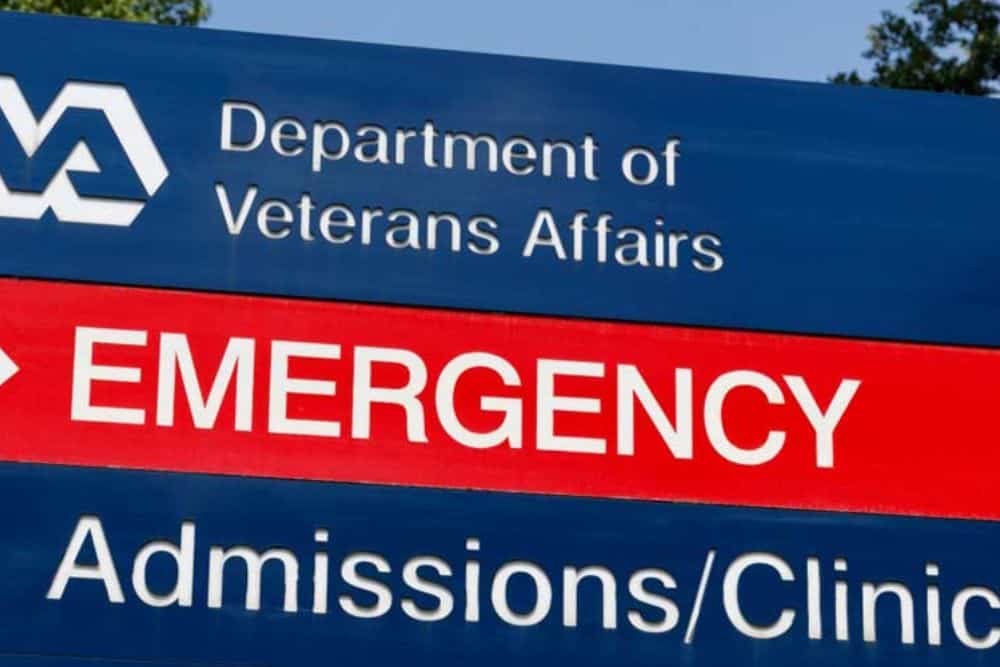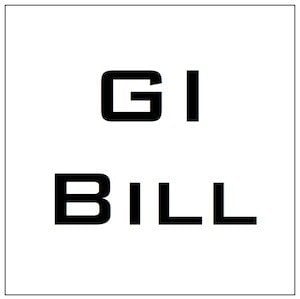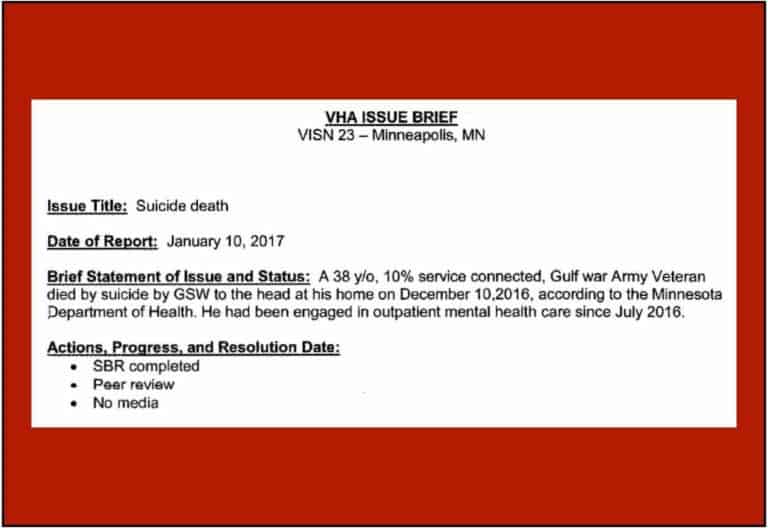The VA Disability Pay Chart And VRE Counselor Transition
How the VA Disability Pay Chart Impacts Veterans and VRE Counselor Transition: Many veterans face the challenging reality of balancing their mental health needs with financial constraints. Understanding the VA disability pay chart becomes crucial when veterans need to access counseling services while managing their limited resources.
The complexity of VA benefits often leaves veterans uncertain about their coverage options and entitled compensation. This uncertainty can create additional stress when seeking mental health support, especially when coordinating between VRE counselors and veteran rights advocates for proper care access.
This comprehensive guide examines how the VA disability pay chart affects mental health care access, breaks down available benefits, and provides practical strategies for veterans to maximize their counseling coverage. We’ll explore everything from basic payment structures to navigating the VA mental health system effectively.
Learn More: Krause’s Veteran Rights Law Firm
Understanding the VA Disability Pay Chart Basics
The VA disability compensation system operates on a structured rating scale that directly impacts veterans’ monthly benefits. The VA evaluates service-connected disabilities and assigns ratings based on their severity and impact on earning capacity 1.
How disability ratings determine compensation
How the VA Disability Pay Chart Impacts Veterans and VRE Counselor Transition: The VA uses a percentage-based system ranging from 10% to 100%, increasing in 10% increments, to determine compensation levels. Your rating directly reflects how your service-connected condition affects your ability to maintain gainful employment 2. For 2025, the basic monthly payments for veterans without dependents are:
Monthly payment structure breakdown
The VA adjusts compensation rates annually to keep pace with inflation. For 2025, benefits received a 2.5% cost-of-living adjustment, which took effect on December 1, 2024 4. Veterans with a disability rating of 30% or higher may qualify for additional compensation for dependents, including spouses, children, and dependent parents 5.
Learn More: Krause’s Veteran Rights Law Firm
Additional allowances and benefits
Beyond the basic compensation rates, the VA offers several special allowances:
- Automobile Allowance: Up to $26,417.20 for veterans with qualifying disabilities that prevent driving 6
- Clothing Allowance: $1,024.50 annually for veterans whose prosthetic devices or medications damage clothing 6
- Aid and Attendance: Additional compensation for veterans requiring regular assistance with daily activities 7
Veterans with multiple disabilities use a combined ratings system rather than simply adding percentages together. For example, a veteran with a 60% disability and a 20% disability would receive a combined rating determined by the VA’s Combined Ratings Table, not an 80% rating 1.
For veterans receiving mental health services, understanding these payment structures becomes crucial when coordinating with VRE counselors and planning for long-term care needs. The compensation rates are tax-free 2, providing a reliable source of income while pursuing necessary treatment and support services.
Mental Health Services Coverage Under VA Benefits
How the VA Disability Pay Chart Impacts Veterans and VRE Counselor Transition: The VA’s comprehensive mental health coverage extends beyond basic medical services, offering veterans access to a wide range of mental health support options. Recent policy changes have significantly expanded these benefits, making emergency mental health care free for all veterans, regardless of their enrollment status in the VA health care system 8.
Learn More: Krause’s Veteran Rights Law Firm
Types of covered counseling services
The VA provides coverage for several essential mental health services, including:
- Post-traumatic stress disorder (PTSD) treatment
- Military sexual trauma (MST) counseling
- Depression management
- Substance use problem treatment 9
Evidence-based treatments form the foundation of VA mental health care, with services tailored to each veteran’s specific needs, priorities, and goals 10. Emergency mental health care remains available 24/7 at VA medical centers, ensuring continuous access to critical support services 10.
In-network vs out-of-network providers
How the VA Disability Pay Chart Impacts Veterans and VRE Counselor Transition: Veterans seeking mental health care have options for both VA facility-based and community care providers. For in-network care, veterans can receive treatment if VA facilities cannot schedule an appointment within 20 days or if the facility is more than a 30-minute drive from their home 11. The VA’s community care network has expanded to improve access, particularly in rural areas, with mobile clinics and partnerships with local providers 10.
Learn More: Krause’s Veteran Rights Law Firm
Authorization requirements and processes
To initiate mental health services, veterans must typically obtain approval from their VA health care team before seeking community care, except in emergency situations 11. The authorization process includes:
- Initial evaluation of eligibility
- Referral preparation (up to 14 days)
- Authorization letter issuance detailing:
- Approved provider information
- Specific covered services
- Duration of authorized care 12
For ongoing care management, the Veterans Health Information Exchange (VHIE) facilitates coordination between VA and community providers, ensuring comprehensive treatment oversight 13. This system allows for seamless sharing of health information, improving the overall quality of care for veterans receiving services from multiple providers.
Financial Barriers to Mental Health Care
Recent policy changes have significantly reduced the financial burden of mental health care for veterans seeking counseling services. A groundbreaking development eliminates copayments for the first three outpatient mental health care and substance use disorder visits each calendar year through December 29, 2027 2.
Copayments and out-of-pocket expenses
How the VA Disability Pay Chart Impacts Veterans and VRE Counselor Transition: The VA has implemented several cost-saving measures for veterans accessing mental health services. Veterans with service-connected disability ratings of 10% or higher are exempt from outpatient care copayments 14. For medication management, the VA has established an annual copayment cap of $700, after which veterans receive medications at no cost for the remainder of the calendar year 14.
Learn More: Krause’s Veteran Rights Law Firm
Income thresholds and eligibility
Income-based eligibility for VA health care follows a comprehensive evaluation process:
- The VA considers gross income from employment, including wages, bonuses, and tips 15
- Net annual income from property, farms, or businesses
- Other sources such as retirement benefits and investment returns 15
Deductible Expenses that can lower counted income include:
- Non-reimbursable medical expenses
- Educational costs for college or vocational training
- Funeral or burial expenses for dependents 15
Transportation and accessibility costs
The Veterans Transportation Program (VTP) offers multiple solutions to address travel-related barriers:
- Beneficiary Travel (BT) program provides reimbursement at 41.5 cents per mile 16
- Veterans Transportation Service (VTS) offers scheduled transportation
- Highly Rural Transportation Grants (HRTG) support veterans in areas with fewer than seven people per square mile 17
For veterans requiring specialized transportation, the VA covers costs for approved ambulance services and wheelchair-equipped vehicles when medically necessary 6. Additionally, in certain circumstances, the VA may reimburse up to 50% of local government employee rates for meals and lodging during medical travel 16.
Rural veterans face unique challenges, with only 21% utilizing outpatient facilities compared to 79% of urban veterans 18. To address this disparity, the VA has expanded its mobile clinic services and community partnerships, particularly focusing on areas with limited access to VA facilities.
Learn More: Krause’s Veteran Rights Law Firm
Maximizing Your Mental Health Benefits
Taking full advantage of your VA mental health benefits requires understanding how to combine different coverage options effectively. The VA has recently expanded its mental health services, making them more accessible and comprehensive than ever before 7.
Combining VA and private insurance coverage
How the VA Disability Pay Chart Impacts Veterans and VRE Counselor Transition: Veterans with private insurance can strategically use both VA and private coverage to maximize their benefits. The VA will bill your private insurance for non-service-connected care, which can help offset VA copayments 19. Key advantages of maintaining dual coverage include:
- Greater provider choice and flexibility
- Potential copayment reductions
- Coverage for family members through private insurance
- Protection against future VA funding changes
Fee basis care options
The VA’s Fee Basis program provides coverage for care from non-VA providers when VA facilities aren’t readily accessible. This program is particularly valuable for veterans who:
- Need specialized treatment unavailable at local VA facilities
- Live in rural areas with limited VA access
- Require emergency care when VA facilities aren’t feasible
- Need ongoing outpatient treatment but live far from VA facilities 20
Emergency mental health services
The VA has implemented groundbreaking changes to emergency mental health care access. As of 2023, veterans experiencing mental health emergencies can receive no-cost care at any facility, whether VA or non-VA 21. This coverage includes:
Immediate Crisis Care:
- 24/7 emergency services at VA medical centers
- Coverage at local non-VA hospitals when VA facilities aren’t available
- Up to 30 days of inpatient or residential care
- 90 days of outpatient treatment 7
To maximize these benefits, veterans should stay informed about available services and maintain consistent communication with their healthcare providers 22. The VA offers telemental health options, making it easier to access care without traveling to a facility 23. For veterans with service-connected conditions, working with a VRE Counselor can help navigate the complex system of benefits and ensure maximum coverage utilization.
Remember that VA healthcare benefits remain valid regardless of other insurance coverage 19. Through 2027, veterans are exempt from copayments for their first three outpatient mental health care visits each calendar year 24, making it an ideal time to initiate or continue mental health treatment.
Navigating the VA Mental Health System
Successfully navigating the VA mental health system starts with understanding the various pathways to access care. The VA offers multiple entry points for mental health services, ensuring veterans can find the right care for their specific needs.
Learn More: Krause’s Veteran Rights Law Firm
Finding qualified providers
The VA maintains an extensive network of mental health professionals through their “Our Providers” online directory. This comprehensive database lists primary licensed independent practitioners, including:
- Physicians and psychiatrists
- Psychologists and therapists
- Nurse practitioners
- Clinical nurse specialists 1
Each provider listing includes essential information such as clinical specialties, medical training background, and facility assignments 1. For veterans with specific needs, such as those related to Military Sexual Trauma (MST), the VA allows choosing a provider of the preferred gender 3.
Scheduling and appointment management
The VA has modernized its appointment scheduling system to offer multiple convenient options. Veterans can schedule appointments through:
- VA Online Scheduling portal
- Local VA medical center direct contact
- My HealtheVet secure messaging
- VA mobile app
- Telephone scheduling service 25
For mental health services, the VA commits to providing same-day services when needed, with follow-up appointments typically scheduled within 14 days 7. Veterans using telehealth services can connect with specialists through secure video conferencing, particularly beneficial for those in rural areas or with transportation challenges 7.
The VA’s appointment management system sends two reminder emails – 14 days and 3 days before scheduled appointments 26. For community care appointments, veterans must receive prior authorization, except in emergency situations 25.
Documentation requirements
How the VA Disability Pay Chart Impacts Veterans and VRE Counselor Transition: The VA maintains specific documentation standards for mental health care to ensure comprehensive treatment tracking and continuity of care. Key documentation requirements include:
For Inpatient Care:
- Progress notes and discharge summaries
- History and physical examination records
- Consultation reports
- Laboratory and radiology results
- Discharge medications list 27
For Ongoing Treatment: All psychotherapy notes remain separate from the main medical record per HIPAA regulations 3. However, certain elements must be documented in the veteran’s medical record, including:
- Medication prescriptions and monitoring
- Session start and stop times
- Treatment modalities and frequencies
- Clinical test results
- Diagnosis summaries and treatment plans 3
For veterans experiencing a mental health crisis, the Veterans Crisis Line operates 24/7, accessible through multiple channels:
- Phone: 988 (Press 1)
- Text: 838255
- Online chat through VeteransCrisisLine.net 28
The VA emphasizes Evidence-Based Psychotherapy (EBP), with providers requiring specialized training in specific interventions like Cognitive Processing Therapy (CPT) for PTSD and Cognitive Behavioral Therapy (CBT) for depression 3. This documentation helps ensure veterans receive consistent, high-quality care aligned with their disability ratings and benefits.
Learn More: Krause’s Veteran Rights Law Firm
Conclusion
Understanding VA disability benefits and mental health services might seem complex, but the system offers substantial support for veterans seeking counseling. Recent policy changes, including free emergency mental health care and copayment exemptions for initial visits through 2027, make mental health care more accessible than ever before.
The VA’s commitment to mental health support extends beyond basic coverage through multiple access points, from traditional in-person visits to telehealth options. Veterans who combine their VA benefits with available resources like transportation programs and community care networks position themselves for comprehensive mental health support.
Success with VA mental health services depends on proactive engagement with the system. Veterans should familiarize themselves with their disability ratings, explore all available coverage options, and maintain open communication with their healthcare providers. Armed with this knowledge, veterans can make informed decisions about their mental health care while maximizing their entitled benefits.
Learn More: Krause’s Veteran Rights Law Firm
References
[1] – https://www.accesstocare.va.gov/FindProviders
[2] – https://news.va.gov/press-room/2027-veterans-no-copays-first-three-mental-health/
[3] – https://www.triwest.com/en/provider-handbook/behavioral-health-care/
[4] – https://www.veteransunited.com/network/military-disability-compensation-rate-tables/
[5] – https://www.military.com/benefits/veterans-health-care/va-disability-pay-rates.html
[6] – https://www.va.gov/health-care/get-reimbursed-for-travel-pay/
[7] – https://www.mentalhealth.va.gov/docs/guide_to_va_mental_health_srvcs_final12-20-10.pdf
[8] – https://www.dav.org/learn-more/news/2023/va-to-pay-for-all-emergency-mental-health-care/
[9] – https://www.va.gov/health-care/about-va-health-benefits/
[10] – https://www.mentalhealth.va.gov/vamentalhealthgroup.asp
[11] – https://www.va.gov/resources/eligibility-for-community-care-outside-va/
[12] – https://www.va.gov/resources/how-to-get-community-care-referrals-and-schedule-appointments/
[13] – https://www.va.gov/COMMUNITYCARE/providers/Care-Coordination.asp
[14] – https://www.va.gov/health-care/copay-rates/
[15] – https://www.va.gov/resources/va-health-care-income-limits/
[16] – https://www.va.gov/resources/reimbursed-va-travel-expenses-and-mileage-rate/
[17] – https://www.va.gov/healthbenefits/vtp/
[18] – https://missionrollcall.org/veteran-voices/articles/what-are-the-barriers-to-healthcare-for-veterans/
[19] – https://www.va.gov/health-care/about-va-health-benefits/va-health-care-and-other-insurance/
[20] – https://www.herc.research.va.gov/files/book_648.pdf
[21] – https://www.military.com/daily-news/2023/01/13/veterans-get-free-emergency-care-during-suicidal-mental-health-crises.html
[22] – https://www.chateaurecovery.com/maximizing-va-benefits-for-mental-health-care
[23] – https://www.mentalhealth.va.gov/get-help/access-care.asp
[24] – https://www.mentalhealth.va.gov/
[25] – https://www.va.gov/health-care/schedule-view-va-appointments/
[26] – https://www.myhealth.va.gov/va-appointments
[27] – https://www.va.gov/COMMUNITYCARE/docs/pubfiles/factsheets/FactSheet_27-02.pdf
[28] – https://www.va.gov/vhapublications/ViewPublication.asp?pub_ID=10280






One way the VA does an end around on mental health is V-Tel. In the rural area where the older population needs mental health treatment they have to except V-Tel or nothing. No CITC.